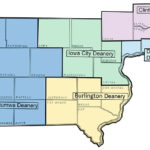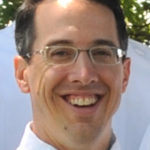By Timothy Walch
“The Life of Cardinal Humberto Medeiros of Boston: Whatever God Wants” by Father Richard Gribble, CSC. Lexington Books (Lanham, Maryland, 2021). 364 pp., $120.

Humberto Medeiros was a humble shepherd who became a prince of the church. Although many will read this statement as triumphant, it’s not the complete story. As this book documents so well, his life was a mix of both exceptional achievement and frustrating failure.
“Whatever God Wants,” the subtitle of this biography, captures the substance of Humberto Medeiros from his birth in the Azores and emigration to the United States to his years as a priest, bishop and archbishop. He followed that mantra — whatever God wants.
That’s the story told by Holy Cross Father Richard Gribble, a professor of religious studies and theology at Stonehill College. A prolific author of a variety of academic and religious studies, Father Gribble dug deep into the documentary record of Cardinal Medeiros’ life and provides a masterful account.
An excellent student, Medeiros distinguished himself in high school and then at The Catholic University of America. He was ordained to the priesthood in June 1946 and spent the next 20 years as a parish priest in Massachusetts and as a doctoral student at CUA and at the Pontifical Gregorian University in Rome.
A success at all his endeavors, he never displayed any evidence of pride or vanity. “He was brilliant and high-minded, but warm and compassionate,” remembered a close friend. “He was humble and completely unaware of his many talents.” He was enormously successful as a priest and pastor.
In April 1966, Pope Paul VI selected then-Father Medeiros to become the bishop of Brownsville, Texas. It was a challenging appointment to a diocese with a large Hispanic population and overwhelming poverty.
Bishop Medeiros understood the people and was tireless as an advocate on their behalf. In the words of one historian, he was “a striking example of the right man in the right place.”
Unfortunately, Rome did not leave well enough alone. On Sept. 8, 1970, Bishop Medeiros was called to become archbishop of Boston.
It was, to say the least, an unusual appointment for an archdiocese so closely identified with Irish American Catholicism. Although he was welcomed by some Boston Catholics, Archbishop Medeiros was seen as an outsider by many others.
Father Gribble carefully details the Medeiros years in Boston. He interweaves the documentary evidence with the views of a range of Boston historians and the result is a common conclusion that this humble man was a poor fit for such a fractious diocese.
Father Gribble outlines the challenges faced by the Boston archbishop. Issues such as disobedience, sexual predation and political participation among the clergy were rife in the archdiocese.
He approached these issues with caution and consultation rather than decisive action. In these matters, his holiness and humility hurt him badly.
To his credit, as Father Gribble notes, Archbishop Medeiros continued to address issues of poverty, racism and inequality in the archdiocese.
He spoke out against the Vietnam War, supported school busing and quietly and effectively retired a substantial multimillion-dollar debt. The pope honored Archbishop Medeiros by making him a cardinal in 1973.
But his 13 years in Boston were a struggle. The burdens of leadership diminished Cardinal Medeiros physically and he suffered through a variety of medical maladies as he aged. He died of heart failure at the age of 67 and was buried with his parents in Fall River.
What are we to make of the Medeiros legacy? Father Gribble shows how a good and holy man — a gifted priest, pastor and bishop — could be woefully unprepared for the acrimonious maelstrom that was Boston. This book is a cautionary tale for anyone interested in the contours of episcopal leadership.
(Walch is a historian of American Catholicism and the author of “Parish School.” He also is a lay director for St. Thomas More Parish in Coralville and a member of The Catholic Messenger’s board of directors.)











